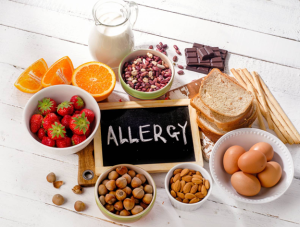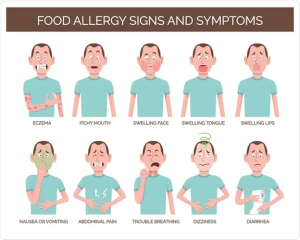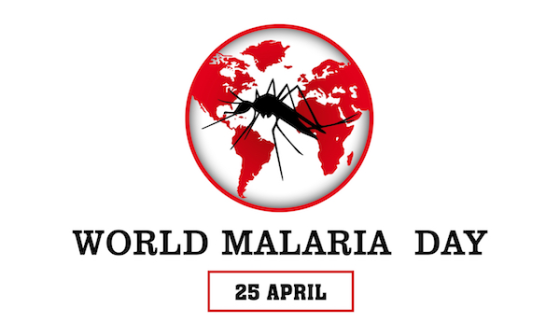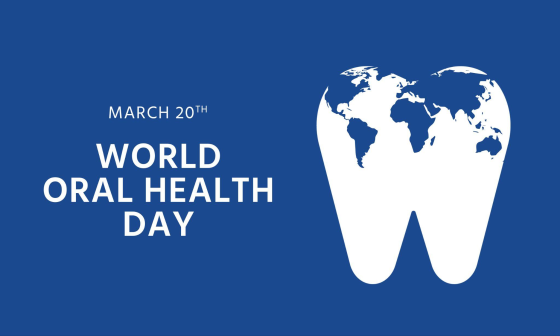Introduction
Allergies to certain foods and drugs have become a wide concern globally, as more and more people have now been diagnosed with an allergy to a certain food item or drug. It is important to identify an allergic reaction early and avoid the allergen/trigger as allergies left without care can cause an anaphylactic shock predisposing you or your loved ones to death.

Source: Shutterstock
Food allergic reactions occur when the immune system interprets a particular food as dangerous by mistake, leading to an allergic response. Wellahealth aims to provide you with knowledge on common food allergens and symptoms and how to live a fulfilled and nutritious life with a food allergy. To understand more about allergic reactions, read this article.
A Food Allergy: What Is It?
An allergic reaction is the body’s response to certain proteins (allergens) present in a substance in this case, it is the body’s immune system’s response to certain proteins present in food substances.
Allergies are generally the result of the immune system misinterpreting these proteins as dangers (allergens) and substances such as; proteoglycans, tryptase, histamine, and carboxypeptidase that are rapidly released by mast cells and/or basophils. When these substances are released into the bloodstream it can affect the skin, respiratory system, and digestive tract, among other body systems.
Common Food Allergens
Allergies are more likely to be triggered by certain foods. Although food allergies can affect anyone, some foods are more frequently linked to the condition. It’s important to remember that dietary allergies can manifest at any age but most frequently begin in childhood.
The common foods that trigger allergic reactions include:
- Peanuts: Peanuts are the most common food that might trigger severe allergic responses.
- Tree nuts: Aside from peanuts other nuts that trigger allergic reactions include almonds, cashews, and walnuts.
- Fish: Shellfish consisting of crabs, lobsters, and prawns. Additionally, other species of fish can also trigger an allergic reaction.
- Milk: A prevalent allergic substance in children, but it can also have an impact on adults. Allergic reaction to milk should not be confused with lactose intolerance, for intolerance only large quantities trigger gastrointestinal symptoms, whereas, for milk allergy much more than gastrointestinal symptoms will be seen even if a minute quantity of milk is taken.
- Eggs: Common food allergens in children, that kids frequently outgrow as they get older.
- Grains: Food allergies seen in grains are frequently caused by wheat and soy, particularly affecting children.
Symptoms of Food Allergies

Source: Shutterstock| insemarDrawings| Medical News Today
Within minutes to hours of eating the allergic meal, symptoms may manifest. They can affect various body parts and range in severity from moderate to severe.
Typical signs and symptoms include:
- On the skin: Urticaria, a skin rash that is extremely itchy and seems elevated. Urticaria can affect one area of the body exclusively (usually the face) or it can affect the entire body. Angioedema or swelling of the eyes, lips, mouth, throat, palate (roof of the mouth), tongue, and face. For some people, the skin doesn’t rise (no oedema); it just gets red and irritated.
- In the respiratory tract: Breathing difficulties and throat constriction. Laryngeal or voice box swelling, can exacerbate breathing difficulties and cause hoarseness. Due to restricted breathing, some patients may experience a cough, chest tightness, and even an audible wheeze.
- In the gut: Gastrointestinal issues include cramping in the stomach, vomiting, diarrhoea, or nausea.
- Anaphylaxis: A serious, sometimes fatal reaction that needs to be treated right away. Breathing problems, a decrease in blood pressure resulting in cold clammy skin, dizziness, and lightheadedness. Additionally, accelerated heart rate and unconsciousness may result from it.
Managing Food Allergy
If you think you have a food allergy, you must present yourself to a hospital to be properly diagnosed. To find and confirm the precise allergen, your doctor/care provider might suggest blood testing, skin tests, or a food challenge.
Food allergies can only be managed by certain strategies as there are no treatments, therefore, the best course of action remains avoidance. Following these precautions largely prevents symptoms and prolongs life and health.
- Allergy testing: See a healthcare provider for testing if you think you may have a food allergy. Specific allergies can be identified with the use of blood and skin prick tests.
- Avoidance: Refusing to consume any food that triggers the allergy is the best approach to control it. When dining out, this necessitates asking questions about ingredients and carefully reading food labels.
- Emergency medication: Antihistamines as prescribed by your doctor are useful for minor symptom relief. However, to prevent anaphylaxis in the event of unintentional exposure, persons with severe allergies should always carry an epinephrine auto-injector, such as an EpiPen.
- Education and awareness: As with all health and fitness challenges, share your allergy with friends, family, and coworkers.
Living With Food Allergies as a Nigerian
Nigerians with food allergies face particular difficulties because there are few laws governing food labelling and different degrees of awareness. People can still be proactive in making sure they’re safe by doing the following:
- Be cautious: When consuming traditional Nigerian food outside your home, be cautious, as many of it may contain common allergens such as fish or peanuts. Always enquire from the cooks and hosts about ingredients before eating.
- Local substitutes: Look for gluten-free substitutes, like yam or cassava flour in place of wheat, or locate neighbourhood markets that sell organic or unprocessed goods.
- Constantly educate yourself and build communities: Participate in local and virtual communities that address food allergies and push for more precise product labelling by being a positive advocate.
Conclusion
Although food allergies are a severe health concern, they are successfully controllable with the right knowledge, care, and management. By being aware of your allergies, being watchful, and carrying the required drugs, you can live a happy, healthy life free from the risk of allergic responses. People with food allergies can effectively manage their disease and have safe, healthy lives by being aware of their condition and taking the appropriate precautions.
Would you like additional information about managing particular food allergies?
Contact Us for additional information on handling allergies and other health-related issues, or get an individualized affordable insurance plan that covers testing, consultations, and management for your health-related concerns.
Article written by Dr. Ifeoma M. Uduh (BDS)
Edited by Dr. John Afam-Osemene (MBBS, DA)





